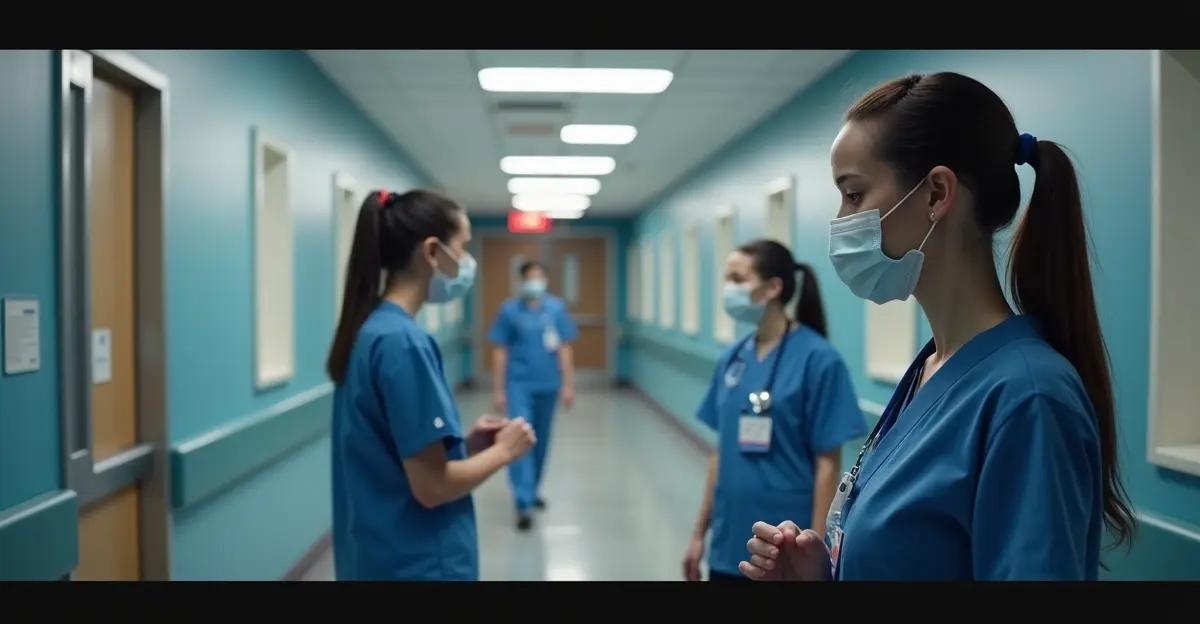Major Expansion of NHS Mental Health Crisis Services
The National Health Service is undergoing a significant transformation in mental healthcare with unprecedented investment and workforce expansion aimed at making crisis support more accessible than ever before. The NHS has confirmed plans to dramatically expand mental health hotlines and crisis services across England, backed by substantial funding increases and a major recruitment drive that has already seen thousands of new mental health professionals join the service.
Unprecedented Investment and Workforce Growth
The government has announced that 6,700 additional mental health workers have been recruited since July, putting them over halfway toward their target of 8,500 new staff by the end of Parliament. This workforce boost comes as part of a comprehensive strategy to address rising mental health needs across the population. 'This represents the largest single expansion of mental health crisis services in NHS history,' said a senior NHS official who spoke on condition of anonymity. 'We're building a system that can respond to people in crisis when they need it most.'
Total planned mental health spending for 2025/26 has reached £13.671 billion, representing a 12.7% increase from the previous year according to the NHS Mental Health Dashboard. This financial commitment underscores the government's determination to transform mental healthcare delivery across the country.
24/7 Crisis Support and Digital Innovation
The expansion includes the rollout of 24/7 digital mental health support through the NHS App, allowing patients to self-refer for talking therapies without needing GP appointments. This digital transformation is complemented by £120 million for 85 new dedicated mental health emergency departments providing round-the-clock crisis care. 'The ability to access support through digital channels has been transformative,' noted Dr. Sarah Jenkins, a clinical psychologist working with the new services. 'Patients can now get help when they need it, not just during office hours.'
New assessment centres are being established across England to provide walk-in access for people experiencing mental health crises, as well as those referred by GPs and police. NHS England chief Sir Jim Mackey described it as a 'pioneering new model of care' that will relieve pressure on A&Es and speed up access to appropriate mental health support.
Service Performance and Outreach Metrics
Performance metrics from the Mental Health Services Monthly Statistics show significant achievements in service delivery. The data reveals that 848,057 children and young people accessed mental health services, far exceeding the 345,000 target. Additionally, 65,463 women accessed perinatal mental health services, nearing the 66,000 target, and 44,167 people accessed employment support services.
The NHS 111 Urgent Mental Health Helpline performance is being closely monitored through monthly data publications that track access to crisis care across England. These services aim to ensure seamless patient experiences with minimal handoffs and access to clinicians when required.
Community Integration and Future Plans
The first 24/7 neighborhood mental health center has already opened in Tower Hamlets, East London, marking a key commitment under the new 10 Year Health Plan. This trailblazing facility offers walk-in support for people with serious mental illnesses like schizophrenia or bipolar disorder, eliminating the need for appointments or referrals. Five additional centers will open later this year in Whitehaven, York, Sheffield, Birmingham, and Lewisham.
'Bringing services together under one roof makes mental healthcare more accessible and comfortable for patients in their local communities,' explained Maria Thompson, a mental health nurse working at the new Tower Hamlets center. 'People no longer have to navigate multiple services when they're already struggling.'
The government is also expanding mental health support teams in schools, with nearly one million more young people set to benefit, and establishing Young Futures hubs for community-based mental health and career support. These comprehensive reforms address the rising mental health prevalence, with recent data showing over 22% of 16-64 year olds now have common mental health conditions, up from 17% in 2007.
While challenges remain in some areas, such as only 63.7% of children with urgent eating disorders starting treatment within one week, the overall expansion represents a significant step forward in making mental health crisis support more accessible and responsive across England.

 Deutsch
Deutsch
 English
English
 Español
Español
 Français
Français
 Nederlands
Nederlands
 Português
Português









